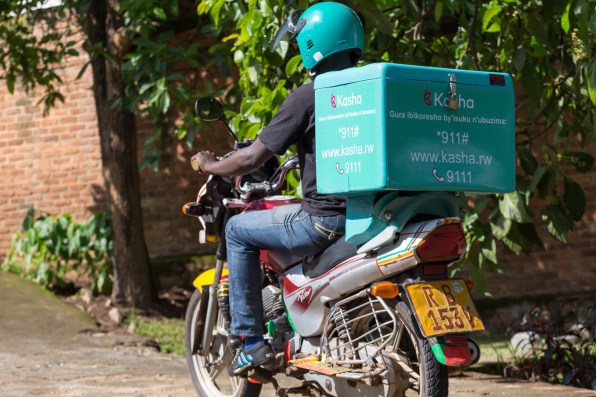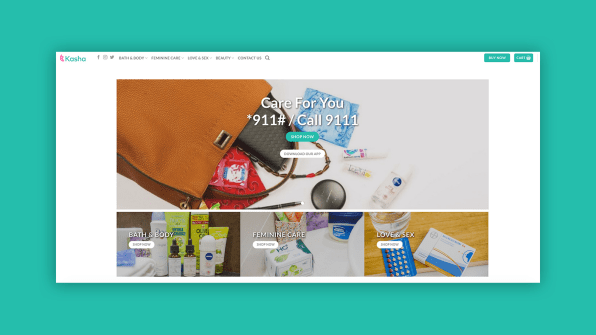In Rwanda, many women face obstacles to accessing necessary health and hygiene products, like pregnancy tests and birth control. For some, they’re just not available where they live. For others, lingering stigma and shame around sexuality make venturing out to buy them in public a daunting proposition.
Kasha, a new mobile e-commerce startup, wants to make it easier for women to access these items quickly and confidentially. Founded in 2015 by Joanna Bichsel and Amanda Arch, two former Microsoft employees who moved to Rwanda after connecting over a mutual frustration that the life-saving technological innovations they’d seen unfold under their noses in the Seattle tech scene were not reaching the developing world. They built Kasha as a for-profit social enterprise that capitalizes on the mobile ordering and e-commerce trends now taken for granted in the developing world.

“Kasha is really working to disrupt the way women access health products in emerging markets,” Bichsel says. The mobile phone, she adds, is the innovation that’s really made confidential ordering possible. “East Africa, in particular, is a hot spot for mobile phone development–there’s great penetration of mobile phones throughout the region, and a lot of interesting things happening with mobile money,” Arch says.
Kasha combines both developments to make its system work, and has fielded around 5,000 orders to date. Through either smartphones or standard feature phones, women can order and pay for the product they need. “Kasha was built to be accessible to anyone who can even just borrow a basic phone,” Bichsel says. Smartphone users can download an app and order through it; women with a feature phone can call a number that will direct them to a representative who will walk them through the inventory. Once a customer selects a product, a Kasha agent will then deliver it via motorcycle either directly to the customer (for a small delivery fee) or to designated pickup locations around the country where women who do not have access to mobile payments systems, and are usually lower-income also have the option to pay in cash and not be charged for delivery. Regardless of delivery method, the items come wrapped to ensure confidentiality.

This delivery method is a radical departure from the way health supplies are usually sourced in the developing world. “Globally, the focus is really on getting health products to clinics,” Bichsel says. That works fine for things like vaccines or malaria medication, but because of the stigma around contraceptives and sexual health products, women often don’t request that the clinic provide these items, Bischel says, even though they personally want them. “That’s lead to this huge gap in access,” she adds, and also a missed opportunity to serve a significant portion of the population.
While Kasha’s mission is decidedly purpose-driven, it’s still a for-profit company. As such, it carries high-quality products that span a range of prices; all women who use Kasha, Bichsel says, have the opportunity to speak to a representative who will ensure that their needs are met within their price range. Kasha’s customer base, Bichsel says, is very diverse economically: Around 30% are low-income and live in rural areas, 50% are middle-income, and 20% are working professionals, mostly in Kigali.
In early next year, Kasha will expand to Kenya, and the founders are eventually hoping to grow into a global network.
Fast Company , Read Full Story
(24)